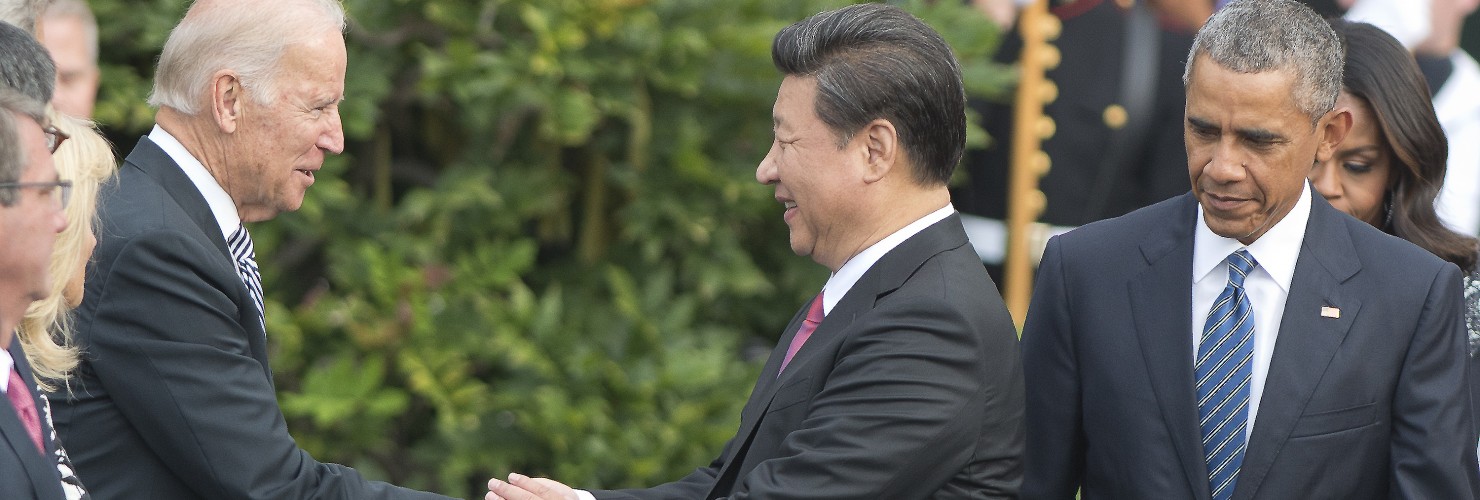

Trump loses, Biden wins – and Xi remains on notice
The next US President won’t return to the Obama-era’s positive engagement with China, says Francois Chimits. Enlisted to support a tougher line, the EU will have to clarify its stance.
Donald Trump is on his way out of the Oval Office, but don’t count on everything changing. Love him or loath him, the 45th President of the United States has catalyzed a deep tectonic shift in the US approach to the economic challenge posed by China. While rejecting simple protectionism, unsavory nativism and full decoupling, President-Elect Joe Biden’s published plans and declarations promise anything but a return to the Obama era of positive engagement and ambitious trade agreements. As the new administration will be counting on transatlantic partnership to deal with China, the European Union should take note.
Biden shares Trump administration’s awareness about challenges posed by China
Along with Trump, out will go a US administration with a mercantilist focus on bilateral trade and the US deficit therein. But what will not go is a new awareness about the orientation of and challenges posed by Xi’s China, which has largely replaced the once axiomatic benevolence of the “change through trade” approach. While a candidate for his new job, Biden vowed to turn to a values-based confrontation about structural issues with China.
With strong words about action against people and companies involved in human rights abuses in Xinjiang and in Hong Kong, Biden has put human and political value front and center. He has shown a similarly consistent approach to more strictly economic – and less headline-grabbing – topics like China’s anti-competitive practices, highlighting trading advantages through technological infringement, and social and environmental dumping.
Biden campaign has more constructive approach to China’s economic challenge
Unlike the Trump administration, Biden’s campaign has put forward constructive ideas to make manufacturing supply chains more secure, short of simply reshoring them. There are few details about the tools a Biden administration would use to pursue human rights, level-playing field and supply-resilience objectives. But this omission is more likely tactical rather than a sign of helplessness. All three issues have received bi-partisan support in Congress and in the public arena – and have at times been championed by the Trump administration.
Biden’s other main difference to Trump is his rejection of the unilateralist mindset in favor of plurilateral actions coordinated with like-minded partners as an alternative to more cumbersome fully multilateral approaches. Biden has spoken repeatedly about his ambition to revive the transatlantic alliance and ties to democratic countries around the world, consistent with the values that are the foundation of his approach to the Chinese economic challenge. Plurilateral approaches with partners like this have been proposed for redefining trade rules, protecting technologies and standards, and creating leverage more broadly.
Biden presidency will not return to China policy of Obama era
So, while the Biden presidency won’t roll back China policy to the Obama era, logic suggests it will take a different approach to a whole number of issues to the Trump administration. Still, we do not know exactly what each one of these will involve. For example, Biden has not publicly spoken about his views on reforming the World Trade Organisation, the desirability of more large trade deals, or more rigorous climate or environmental objectives.
Again, failure to provide details could be tactical. But it could also reflect that Biden is aware that publicly announcing goals and alliances relies in a large part on the intentions of putative partners. And after several years in which trust-based cooperation with Washington has been off the cards, they might not yet be clear about their own preferences. In the EU, for example, the possibilities of confronting Xi’s China in concert with a like-minded, cooperative and ambitious US administration do not seem to have received much thought.
Potential US partners were perhaps hoping to avoid debate about the risks of pushing China to better follow international rules and customs – especially those most exposed to economic retaliation. Not only have EU states failed to agree broad goals, they have been unable to define common preferences about economic consequences of human rights infringements, reforming international anti-subsidy regimes, applying trade rules to developing countries, supply-chain resilience, or e-commerce rules. All this would only get harder still if China were to start wooing the EU to compete with the overtures from the US.
Transatlantic coalition to confront China is possible despite differences
In addition, a Biden administration looking to partner with the EU to take on China will not ignore long-standing differences with the EU in areas like trade and investment. The Biden campaign and the Democrats in Congress share long-held US criticism of the EU’s substantial non-tariff barriers to US-EU trade in agricultural products and of the overt power of the WTO’s dispute-settlement mechanism. A Biden administration will likely also advocate for a much stricter treatment of state-owned enterprises when agreeing trade rules than the EU, which continues to pursue a more ownership-neutral approach.
Still, the stakes suggest that some kind of a transatlantic coalition to confront China’s economic challenge is possible. The trick will be for the US and the EU to stress points of agreement over those of disagreement – as Airbus and Boeing argued over subsidies, China was busy building up a homegrown rival. In the medium term, issues like better supply-chain resilience could create strong strategic momentum and mutual trust. In the short term, renewed cooperation on climate issues could signal a newly united front and serve to develop common goals that could be used to constructively engage with China.

